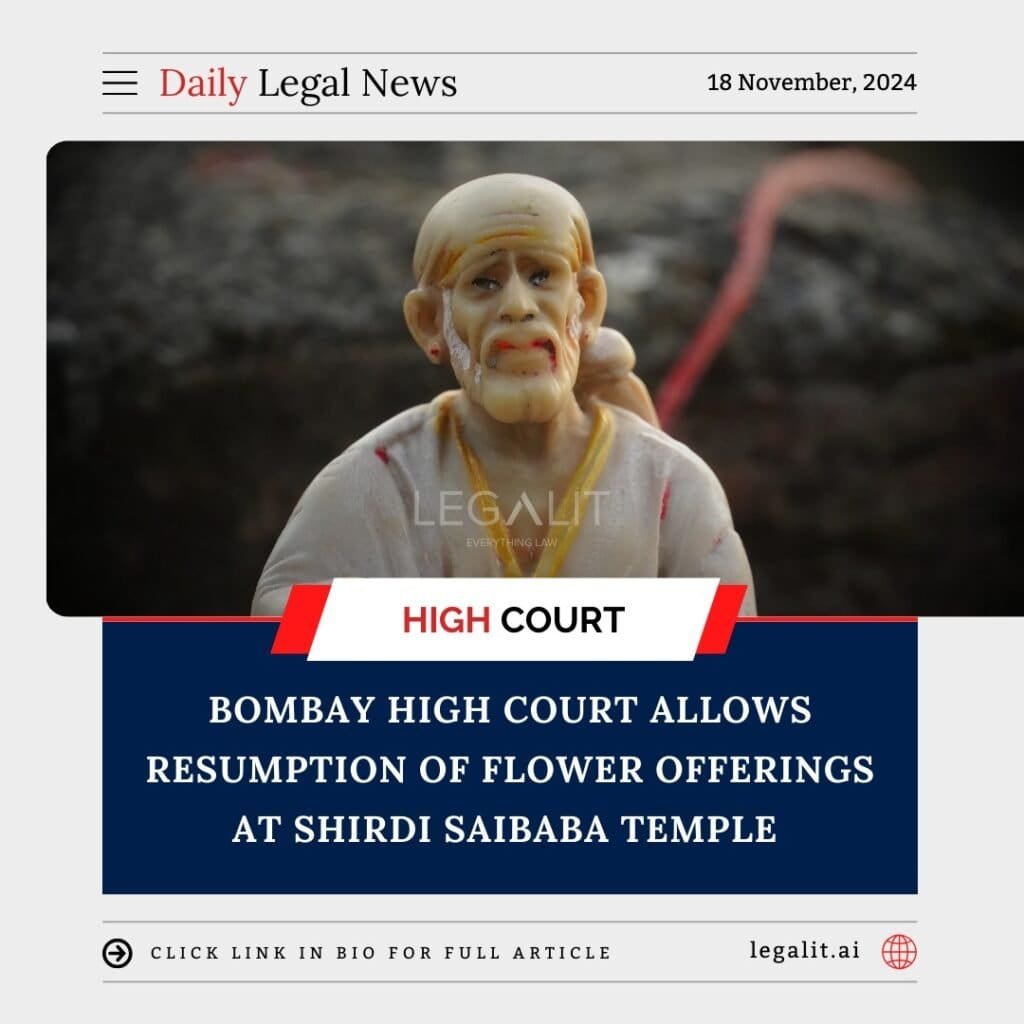
The Bombay High Court has permitted the resumption of flower offerings at the Shirdi Saibaba Temple, overturning an earlier decision by the temple management to restrict such practices. The ruling came as a relief to devotees, many of whom consider the offering of flowers an integral part of their religious observance.
Background:
The Shirdi Saibaba Temple Trust had earlier banned flower offerings within the temple premises, citing concerns over cleanliness, overcrowding, and logistical challenges. The decision sparked discontent among devotees, who argued that the ban infringed upon their religious rights.
Petitions were filed challenging the temple trust’s decision, with the argument that flower offerings are a significant aspect of their devotion and that the ban deprived them of this spiritual practice.
Court’s Decision:
The Bombay High Court, while hearing the matter, noted that the right to practice and profess religion is a fundamental right under Article 25 of the Indian Constitution. The court held that while temple management has the authority to regulate practices for administrative convenience, it cannot completely prohibit religious acts that hold deep significance for devotees.
The court directed the temple trust to put in place measures to manage the influx of flowers effectively while ensuring cleanliness and smooth functioning.
Implications of the Judgment:
- Devotees’ Relief:
The decision is a victory for devotees who view the offering of flowers as a crucial expression of their faith and devotion. - Regulated Practices:
The court emphasized the need for balancing administrative concerns with religious practices. It suggested measures such as designated zones for flower offerings and better waste management to address logistical issues. - Broader Legal Significance:
The ruling underscores the judiciary’s role in safeguarding religious freedoms while accommodating practical concerns, setting a precedent for similar cases involving restrictions on religious practices.
Challenges Ahead:
- Implementation of Guidelines:
The temple trust will need to devise effective mechanisms for managing the resumed flower offerings without compromising the sanctity and cleanliness of the temple. - Sustainability Concerns:
Managing flower waste in an environmentally sustainable manner will be essential, given the large volume of offerings expected.
Conclusion:
The Bombay High Court’s decision to allow the resumption of flower offerings at the Shirdi Saibaba Temple strikes a balance between the protection of religious rights and administrative regulation. The ruling reinforces the principle that administrative convenience cannot override fundamental rights, ensuring that devotees can continue their spiritual practices while adhering to guidelines that maintain the sanctity and order of the temple.